This week, the podcast I host, The 250, will be marking its one hundredth episode with a look at Christopher Nolan’s “Inception.” I’m very much looking forward to it. It’ll be available on Saturday from 6pm UTC. I also have a book coming out on Christopher Nolan, titled “Christopher Nolan: A Critical Study of the Films.” This is a much more personal (and much less detailed) discussion of Inception than the one in the book. So, if you like this piece, it might be worth a look.
I’ve always been somewhat wary of Inception.
I mean, Inception is a fantastic movie. There is a reason that it is so beloved and so highly regarded. It is perhaps one of the four core Christopher Nolan films, along with Memento, The Prestige and The Dark Knight. It is the rare big budget blockbuster with no longstanding association to established intellectual property, and one of the few to succeed on that sort of level. Indeed, the only other comparable examples on a similar scale are Interstellar and Dunkirk, both directed by Christopher Nolan.
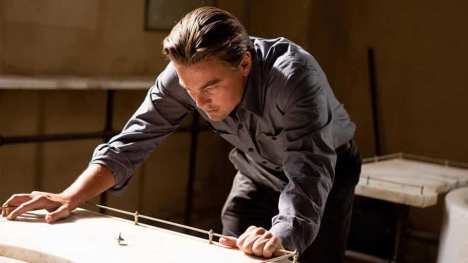
More than that, Inception has permeated the popular consciousness. It is a film that has become part of the broader conversation. It seems that barely a few months can go by without another hot take on that closing scene, with news coverage of commencement speeches or interviews with actors. More than that, the film itself has become something of a critical and popular shorthand. It is a stock comparison for any movie or television show with a vaguely similar concept. Maniac is the most recent example, even inviting the comparison with an elaborate hallway action scene in its penultimate episode.
And yet, in spite of that, Inception is a movie of which I’ve had a somewhat strained relationship. I still adore it, as I adore most of Nolan’s filmography. I think its reputation is well-earned, and I think it excels by every measure that it sets itself. It delivers on just about every front, showcasing Nolan as a director with incredible command of both the form itself and the audiences watching these films. Inception is a big and broad crowdpleaser that is also a surprisingly intimate and personal film, which works as both a story and as a showcase. It is thrilling, it is engaging, it is compelling.

However, there’s something underneath the surface that makes me feel a little uncomfortable. A large part of this is simply down to the fact that it’s a movie that is fundamentally about movies. This is nothing new of itself. All of Nolan’s movies are about stories, whether personal or cultural. In fact, it could be argued that the central trilogy of Nolan’s work is actually The Prestige, The Dark Knight and Inception, a trilogy of films that seem to be about the challenges of constructing and maintaining spectacle, arriving at a point in the director’s career where Nolan was transitioning from smaller films to high-profile epics.
Inception is the most transparent of these films, exploring most directly the mechanics of how storytelling works within a cinematic framework. There are even scenes of characters discussing in relatively clinical terms the mechanics of catharsis and how best to emotional manipulate their target audience. Inception feels very much like Nolan is stopping and deconstructing his stopwatch storytelling for the benefit of the audience, revealing how the trick is done and how the pieces fit together. As with everything Nolan does, he does this with a great deal of skill and nuance. However, it can’t help but feel a little cynical.
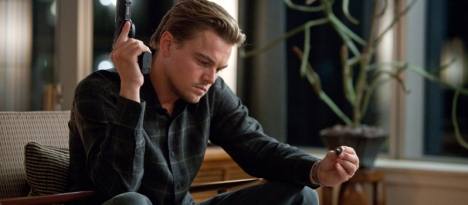
The stereotypical portrayal of Christopher Nolan is as a director who is very emotionally distant from his work. There is a tendency among certain film critics to describe Nolan as “cold” or “clinical”, as a writer and director more interested in the precision with which the elements of his story fit together than with any warmth that might be generated in the process. This is a very crude and superficial criticism of Nolan’s filmmaking, but one often reflected in the stock comparisons made to Stanley Kubrick.
Nolan’s films are not emotionless, although many opt not to confront emotion directly. Interstellar is the obvious counter-example here, and in some ways a direct response to (and rejection of) these comparisons to Kubrick, by reframing 2001: A Space Odyssey as a story about the influence on love in the universe as a force like gravity. Nevertheless, Nolan’s protagonists are often motivated by feelings of loss and grief, by longing and desire for connection; Leonard in Memento, Cobb in Inception, even Bruce in the Dark Knight trilogy. Nolan’s characters often suffer not from a lack of emotion, but a surplus of it.
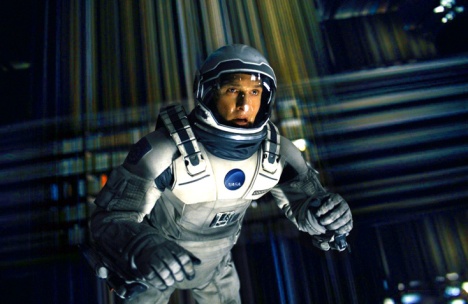
In this respect, then, Inception is probably the closest that Nolan comes to being the cynical film director that many of his critics describe him as being. It should be noted, after all, that the emotional subplot hinging on Cobb’s desire to get home to his family was largely added by Leonardo DiCaprio to flesh out the character and to clarify his motivations. Outside of Cobb, the big emotional arc in Inception belongs to the supporting character of Robert Fischer, the heir to a multinational corporation who must reconcile with his deceased father. The only problem is that this reconciliation is a manipulation. Fischer is a mark.
It is hardly shocking to suggest that Inception is a film about making movies. That is one of the most basic readings of the movie. Ariadne is the writer, Arthur is the producer, Eames is the actor, Yusef is the cinematographer, Saito is the financier or the studio. Cobb is the auteur, the director, the person who brings all of these individuals together, but who also pours so much of his personality into the finished product that would otherwise seem a much more collaborative work. Again, this is all a very straightforward metaphor, similar to the use of magic as a metaphor for cinema in The Prestige.

However, one under-discussed aspect of the cinematic metaphor in Inception is the idea of Robert Fischer as the audience. The crew are putting together this elaborate heist, but all for the benefit of an audience. Fischer is an audience of one, he is a character who will be subjected to this adventure, who will be swept up in it, who will bear witness to the fruits of all this labour. After all, Fischer is the only person who gets drawn into the drama without peering behind the scenes, without the discussion of all the planning and preparation necessary to execute this ambitious stunt.
As a result, Inception seems rather cynical in its treatment of Fischer. As Ariadne states on getting into the car with the crew on discovering that the team plans to give Fischer the idea that his godfather is plotting against him and that his father always loved him, “We’re gonna destroy his one positive relationship?” Eames observes, “No, we’ll repair his relationship with his father by exposing his godfather’s true nature. We should charge Fischer a lot more than Saito for this mission.”

As a result of falling asleep on the wrong plane, Robert Fischer will be left with the impression that his godfather is trying to usurp him and that his father wanted him to surrender his multi-billion-dollar birthright. While these beliefs are obviously subjective, Fischer will carry them around with him for the rest of his life without ever understanding why he feels this way. He will never even know that inception happened. He may not even remember the dream that led him to feel this way. All of this is in service of Saito’s financial ends, making it seem like a particularly cynical exercise.
Of course, this is the power of inception. To be fair, the film acknowledges the gravity of the concept. “You asked me for inception,” Cobb warns Saito. “I do hope you understand the gravity of that request. The seed that we plant in this man’s mind will grow into an idea. This idea will define him. It may come to change… it may come to change everything about him.” There is something quite horrifying in this idea that people can be defined by ideas that they do not even know that they are receiving.
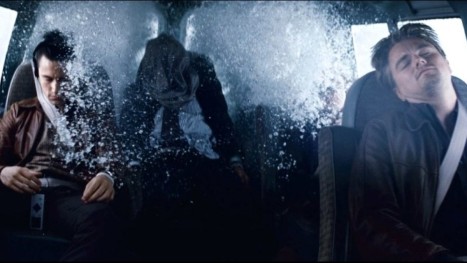
Again, this fits within the central cinematic metaphor in Inception. Film is a hugely populist medium, and one with both a broad reach and a deeply personal affect. Cinema is often both a group experience and a personal one. Audiences sit in darkness together, staring at a screen. They all see the same image, but each individual processes that image in their own way. Every person takes their own thing from the experience, internalising their own narrative and trying to process the combination of (objective) images and sounds in their own (subjective) way.
This isn’t just paranoia about subliminal advertising or anything so sensationalist. Nor is it about anything as crass as the spike in military recruitment numbers driven by films like Top Gun. It’s about something more subtle and more insidious, the way in which films and stories influence us without even the audience even realising it. The entire romantic comedy genre is built around normalising dangerous and unsettling behaviour – from blurring lines about consent and sexual assault through to perpetuating an idealised image of stalking.

This is a lot of weight to place on cinema, but is particularly worthy of attention given the medium’s history as a populist art form. Generations have grown up watching movies from a young age, having internalised the ideas perpetuated in these films. In some ways, this feels like an extension of Nolan’s suggestion in The Prestige that people can live their entire lives trapped within narratives that they construct and the implication in The Dark Knight that society itself is just a narrative constructed. Inception takes a very cynical look at where these ideas come from.
There’s certainly an ambivalence in Inception about creating these sorts of narratives. Cobb is the only character in the narrative to have pulled off a successful inception before the start of the film, one involving his wife Mal. Cobb managed to convince his wife to leave an idyllic dream existence, but at a terrible cost. She misconstrued the message that he was trying to send, and came to believe that the real world was itself nothing but a dream from which she needed to wake up. (To extend the cinematic metaphor to breaking point, it evokes the high profile cases of people who had similar doubts after The Truman Show.)

If Cobb is to be read as the auteur in the world of Inception, this suggests that some anxiety about telling these kids of stories, about the way in which they can be interpreted, in the way that these stories can inadvertently influence and define individuals. In this context, it’s perhaps worth noting that Christopher Nolan followed Inception with The Dark Knight Rises, a film that is largely dedicated to deconstructing and rejecting particular readings of The Dark Knight. There is a question running through Inception about how much responsibility Cobb has for the unexpected consequences of his work, the actions of those he incepted.
In this respect, Inception has perhaps aged rather well, much like The Dark Knight Rises released directly after it. If The Dark Knight Rises warned about the dangers of populist forces rising from the ashes of the financial crisis, Inception is openly anxious about the loosening grip on reality and the tendency of illusory landscapes to bleed out into the material world. “No creeping doubts?” Mal teases Cobb. “Not feeling persecuted, Dom? Chased around the globe by anonymous corporations and police forces? The way the projections persecute the dreamer? Admit it. You don’t believe in one reality anymore.”
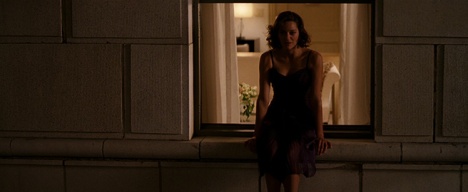
Repeatedly in Inception, there is a sense that Cobb has himself lost track of the boundaries that exist between the real world and the world of the dream. The sequence in Mombassa is shot like something from a paranoid nightmare, adhering to the rules that Cobb outlines to Ariadne about the dangers of a weaponised subconscious. Cobb repeatedly spins his totem to make sure he is awake, even long removed from his last dream. There is even a reading of the film where Cobb himself is being subjected to an inception, to parallel that of Fischer.
These elements were intriguing on release, an extension of the same sort of millennial anxieties about the nature of reality that played through Memento and which were very popular in late nineties films like The Matrix, Dark City, The Thirteenth Floor. However, they also seem very much in step with the world as it exists almost a decade later. There is an increasing sense that global consciousness (and particularly American consciousness) has lost track of reality, although writers like Kurt Anderson would argue that American identity has always been tied up in illusory constructs. Cinema was undoubtedly part of that.

As such, there’s a brutality and a cynicism in how Inception approaches that role of cinema, with Nolan effectively explaining in great detail how the trick is pulled. In The Prestige, the magicians argue repeatedly that the mechanics of the trick are incidental to its impact. “The secret impresses no one,” Alfred Borgen explains at one point. “The trick you use it for is everything.” However, Inception is effectively all about the trick. Inception is a heist movie, and so is built primarily of exposition. It is about how to pull this job, only the job happens to be telling a story that will have a fundamental impact on the audience.
The characters of Inception talk about the narrative in very cold and business-like terms, like writers arguing over the draft of a script, or producers bickering at a storyboarding session. Perhaps reflecting the manner in which the emotional backbone of Inception was shaped in consultation with leading man Leonardo DiCaprio, it is Cobb and Eames who have the strongest opinions about how best to get their point across to Fischer, how best to subtly influence and manipulate his world view through messaging cues.

When Cobb tells Eames that the objective is to get Fischer to break up his father’s company, Eames responds, “Well, you see right there, you have various political motivations and anti-monopolistic sentiments to set forth. And with all that stuff, it’s really at the mercy of your subject’s prejudices. And what you have to do is start with the absolute basic. The relationship with the father.” Eames is advocating for a Campbellian narrative, to construct a story in which Fischer experiences emotional catharsis through atoning with his father. Eames is arguing for the New Hollywood era, the work of Lucas and Spielberg.
When Eames later suggests that the team could try to convince Fischer to break up the company as a “screw you to the old man”, Cobb rejects that notion because it doesn’t fit with his understanding of how people respond to stories. “I think positive emotion triumphs negative emotion everytime,” Cobb states. “We’re all hearing for a reconciliation. A catharsis. We need Robert Fischer to have a positive emotional reaction to all this.” There’s almost something optimistic in this idea, particularly in an era where rage and anger travel faster through social networks than joy and optimism.

At the same time, all of this is just theory. It is not an end of itself, but a series of tools being employed by these artists to accomplish their objectives. Their objectives are to help Saito defeat his largest competitor and to serve his corporate agenda. After all, Saito has enough money floating around that he can casually buy an airline because “it seemed neater.” It is not as though Saito needs to vanquish Fischer. However, he has the money and the connections to attempt this project, and so the team set about trying to plant this idea in Fischer’s mind.
This is a rather cynical application of artistic talent – of the “pure creation” that Ariadne describes. Then again, as Nolan transitioned from indie to blockbuster director, his films were increasingly preoccupied with the blurred boundaries between art and commerce and increasingly anxious about the horrors of late capitalism. For all the complaints about the politics of The Dark Knight Rises, it is very clearly a film about how economic inequality has horrific outcomes that could be avoided if those in positions of power take some small more responsibility.

Films like The Prestige and Inception are more engaged with the economics of art. In The Prestige, Alfred Borden has one great artistic trick, a trick so perfect that even his long-term rival cannot successfully replicate it. Borden uses this trick to elevate himself and his family out of poverty. However, Robert Angier cannot stand that Borden has this one great trick that is unique to him. In some ways, The Prestige is a story about industrialisation and mass production, of the horror that derives from Angier trying to mass-produce what should be something unique and personal to Borden.
Inception riffs on similar ideas, unfolding against the backdrop of a near future or alternate present where massive corporations have carved up the world into fiefdoms; Saito operates in Japan, Cobalt in Mombassa. If Inception blurs the line between the real world and the dream world, it seems like a potent metaphor for the way that large corporations have effectively carved out ideological spaces in the popular consciousness; Disney controls Star Wars and Marvel, Fox has the X-Men, Warner Brothers have DC Comics and the Conjuring Universe.
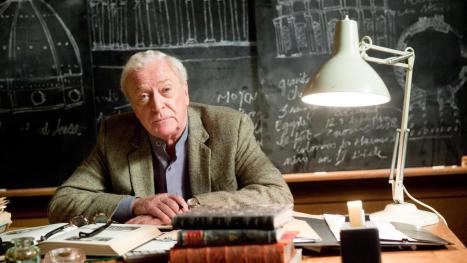
After all, Inception is well aware of its relatively unique status as a big budget blockbuster that exists outside these existing intellectual hierarchies. “Never recreate places from your memory,” Cobb tells Ariadne. “Always imagine new places.” If Inception is about conceptual spaces rather than literal spaces, it seems a very potent metaphor for the state of modern cinematic storytelling, where nostalgia is an increasingly powerful creative force. Although not at the centre of the story, Inception is very much a tale about how corporate interests and capitalist power structures have invaded and colonised our dream space.
As such, there’s something very cynical about the cinematic metaphor at the heart of Inception, where storytelling is consciously weaponised in service of a nakedly capitalist and political agenda. Saito wants Fischer to dissolve his family’s empire, so Cobb constructs a story that reinforces that theme and which seeds that idea. It reflects the way in which media companies consciously stoke audiences’ biases and play to their worst fears, all in service of a naked political agenda. There’s a brutality in the depiction of the art of narrative in Inception, a cynicism about the process that cuts right to the bone.

It is one thing for Cobb to make a mistake, to accidentally send the wrong message to Mal during his earlier botched inception. Maybe he was careless, maybe he was indifferent, maybe he wasn’t paying enough attention. Maybe Cobb is right to feel guilty, and correct to assume some responsibility for how Mal internalised the idea that he planted. However, that botched inception was not malicious and premeditated. It was not designed to harm Mal or to suit the agenda of some capitalist powerbroker. No director should be held entirely accountable for a misinterpretation of their work.
In contrast, the successful inception of Fischer is a lot more cynical from the outset. It is something that fundamentally changes his identity, and which is based on a lie. His father never loved him, no matter how much he might want to believe that. Indeed, Cobb and his crew don’t even particularly want Fischer to believe that as an end of itself. It is just a bonus that Fischer feels good about himself while doing exactly what they wanted him to do in the first place. There’s an argument that catharsis is a worthy end of itself, even when based on a lie, but Inception still presents Fischer as a mark.

This is the tension that I’ve always felt with Inception, the struggle I’ve always had with it. It’s a fantastic piece of cinema, thoughtful and insightful, beautifully constructed and incredibly paced, exciting and invigourating. However, beneath all that, there’s something very dark lurking; arguably something much darker than the horrors that underpin Nolan’s earlier films like Following, Memento or even Insomnia. While those horrors were individual in nature, the result of characters lying to themselves or others, Inception is about a much bigger sort of lie.
If Inception is a movie about the power and potential of filmmaking, it’s a very cynical look at those things indeed.
Filed under: On Second Thought | Tagged: capitalism, Christopher Nolan, cinema, corporations, dream space, dreams, films, ideas, imagination, Inception, Leonardo diCaprio, mind, Movies |




















Leave a comment